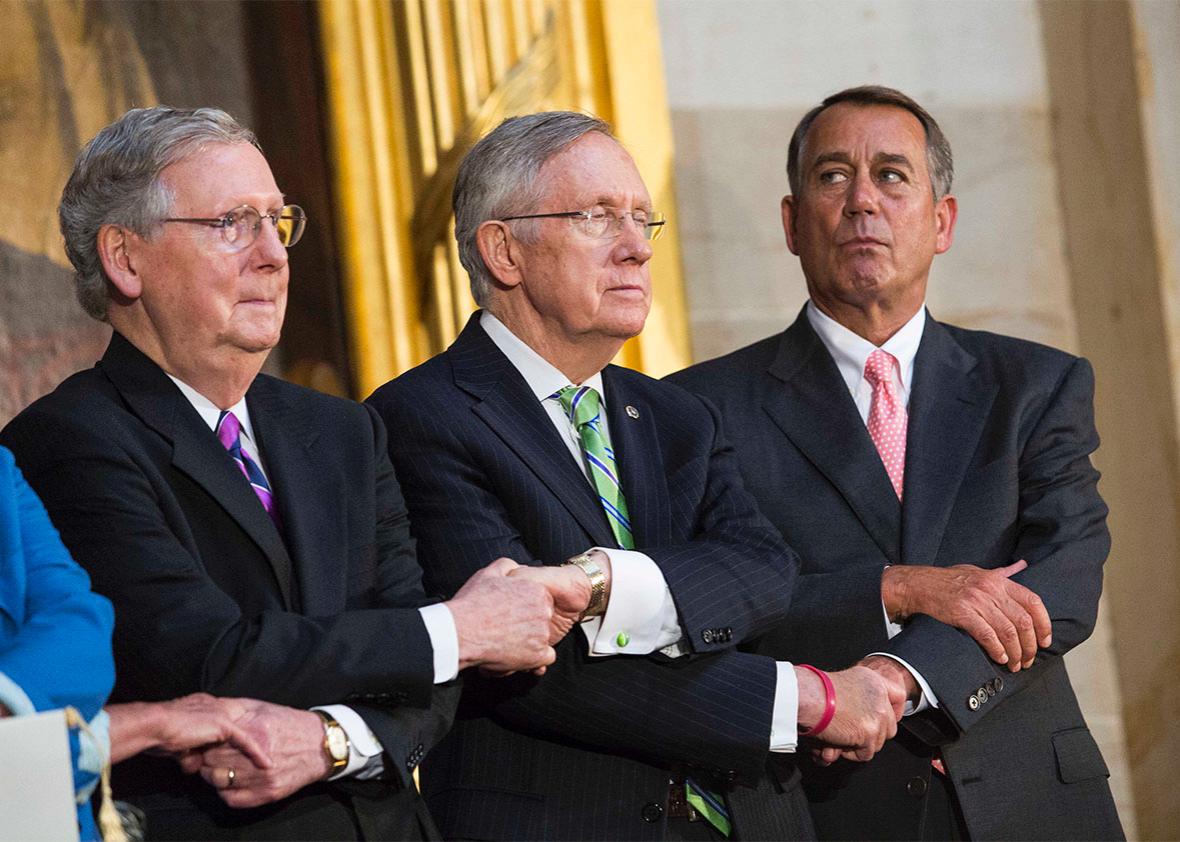Can you imagine how relieved House Speaker John Boehner must feel right now? After years of wrangling Republicans in the House, and after almost a quarter-century as a member of Congress, Boehner is letting go. By the end of next month, he will finally be free of the Republican rebels who’ve tormented him for years. Boehner had made it known that he had no intention of wielding the speaker’s gavel for much longer, but no one expected him to step down so abruptly. It seems that Boehner saw the writing on the wall. Members of the House Freedom Caucus, a collection of Boehner’s bitterest foes within the House GOP, have been plotting to remove him from office for months, and with more than 30 committed anti-Boehner votes, they were in an excellent position to succeed.
Over the next few days, Boehner will shepherd a “clean” spending bill through the House to avoid a shutdown of federal agencies. You could think of this as Boehner’s parting gift to middle-of-the-road Republicans, who dread being dragged into yet another cosmic battle over whether to keep the government’s lights on.
There are plenty of decent candidates to succeed Boehner in the top job. House Majority Leader Kevin McCarthy has the inside track, as he is well-liked across the party. He’s also considered something of a lightweight, who sees himself more as a political tactician than a legislative visionary. As of now the only Republican who could wrest the speaker’s gavel from McCarthy is Paul Ryan, chairman of the House Ways and Means Committee and the congressional GOP’s most creative policy thinker. But Ryan has explicitly ruled himself out from contention, presumably because becoming speaker would be a thankless ordeal that would distract him the work of crafting conservative domestic policy legislation. Jeb Hensarling, chairman of the House Financial Services Committee, is said to be considering a run at the top job, or a run for majority leader if McCarthy moves up the ladder. And there might be a wild card or two, like Jim Jordan. Both Hensarling and Jordan hail from the party’s right, but Hensarling is seen as more thoughtful and disciplined, while Jordan is seen as more of a loose cannon.
What Republicans need is a speaker who can unite members around a coherent agenda. It is extremely unlikely that GOP lawmakers will be able to achieve their larger policy goals as long as President Obama is in office. And now that the presidential race is underway, congressional Republicans will have to take a backseat to the major presidential candidates on big-picture issues like tax and health care reform. What Republicans in the House can do, however, is advance a constitutionalist agenda to defend the prerogatives of Congress and resist the expansion of the executive authority. Right now, for example, many federal agencies have independent funding streams that they can use to perform their duties even in the absence of congressional approval. This badly undermines the constitutional principle that the spending power resides in Congress, and Republicans should do what they can to put a stop to it. More broadly, Republicans should seek to reform the way Congress does business by streamlining the federal budget process and by giving committees more resources to hire expert staffers so they won’t be so dependent on lobbyists and other outside organizations to make informed decisions.
The beauty of this agenda is that it can appeal to all Republicans, whether they’re moderates or hardcore conservatives. While Republicans in the Obama era disagree about many things, they share the belief that the executive branch has grown far too powerful and that the budget process is broken and biased against meaningful spending reform. By addressing these issues now, House Republicans can set the stage for major conservative reforms in the event that a Republican president is elected in 2016.
